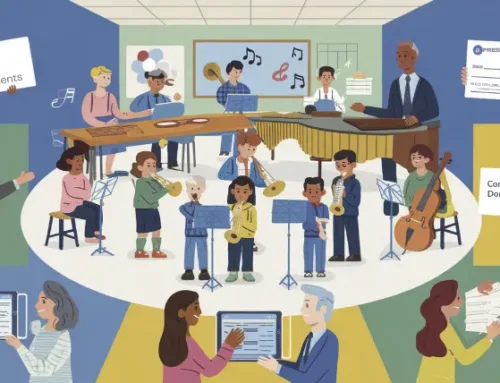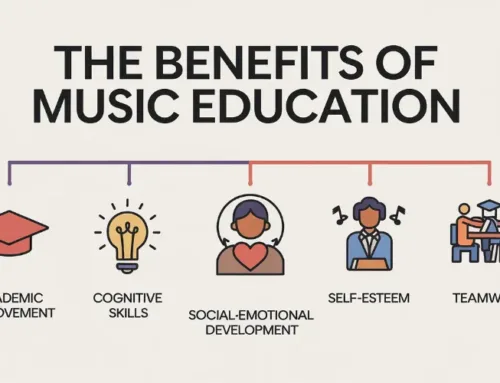Music lessons often conjure images of a student sitting at an instrument in a teacher’s studio. But what if the teacher came to you? Traveling music teachers buck the typical lesson structure by meeting students where they are most comfortable. Though unconventional, this flexible approach provides meaningful benefits for both music students and teachers.
For students, the main advantage of traveling lessons is convenience. Teachers will drive to a student’s home, school, or other preferred meeting place. This saves students the hassle of lugging instruments and materials to and from lessons. It also allows lessons to happen in familiar, comfortable environments. Students with anxiety may find this reduces stress and improves focus.

In-home lessons also enable teachers to tailor sessions to students’ learning styles and interests.
Teachers can integrate lessons into students’ lifestyles by incorporating practice into daily routines.
For example, a teacher may utilize household items to demonstrate beat and rhythm.
They may also assign practice exercises that fit students’ schedules and instrument access.
This flexibility and personalization get students actively engaged in the learning process.
For teachers, traveling opens up professional possibilities.
It provides opportunities to serve a broader range of students in various locations.
Teachers can eliminate the costs and upkeep of private studio space and focus on instruction.
Traveling also allows teachers to schedule lessons when and where they want. The freedom and control over one’s schedule are attractive for many teachers.
That said, traveling requires significantly more time and energy. Teachers must account for drive times and transportation costs. The extra organization is also needed to haul all the necessary lesson materials. Teachers may benefit from mobile forms of technology to minimize what needs to be carried out. For instance, sheet music can be provided digitally through tablets or online libraries.

To offset potential burdens, teachers should streamline their business structure. Maintaining detailed student records, lesson plans, and progress-tracking systems is essential for productivity. Teachers should also set location, scheduling, cancellations, and fee policies and parameters. Clear communication of policies creates positive teacher-student relationships.
While challenging at times, traveling enables music educators to impact more lives positively. Students gain convenient, personalized lessons. Teachers enjoy flexible lifestyles and fuller teaching schedules. With proper planning, traveling can be an advantageous teaching method.

Conclusion:
Stepping outside the traditional lesson studio model benefits all involved in music education.
Students flourish with convenient, personalized instruction.
Teachers expand professional prospects and control over scheduling.
Though traveling requires extra organization, its advantages make it a worthwhile endeavor. Music educators looking to grow their business should consider this student-centered approach.







Leave A Comment
You must be logged in to post a comment.